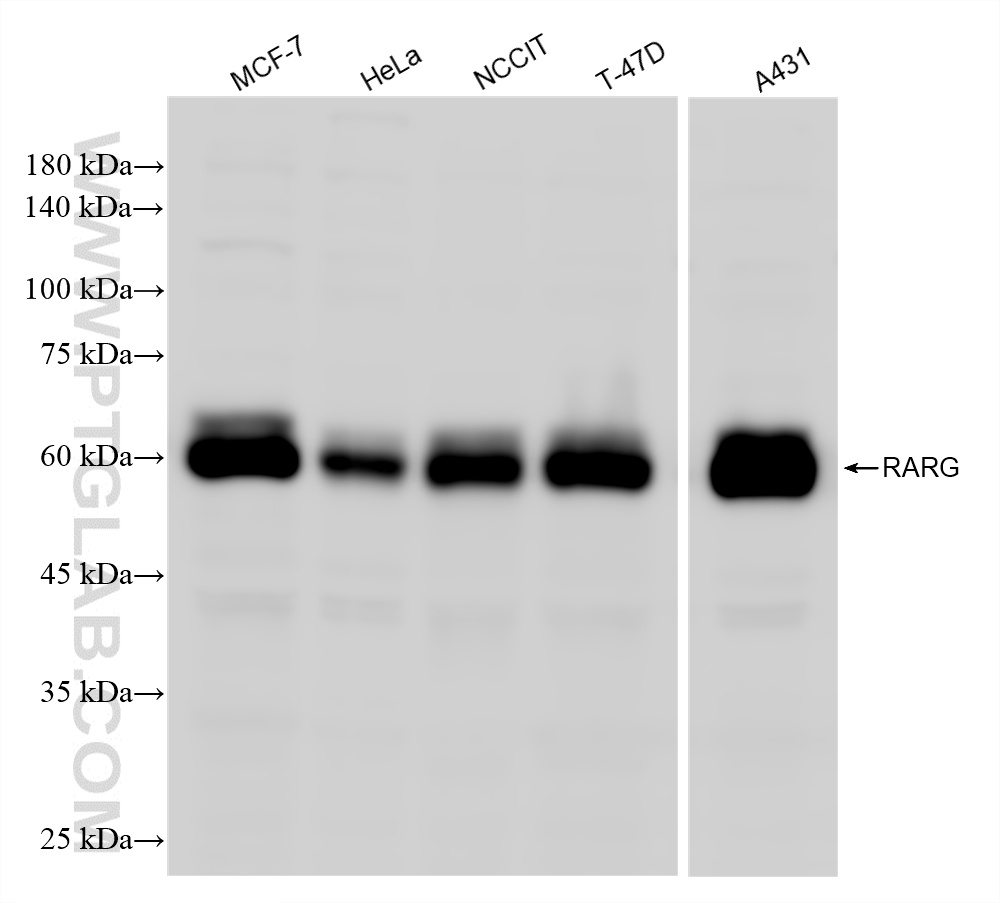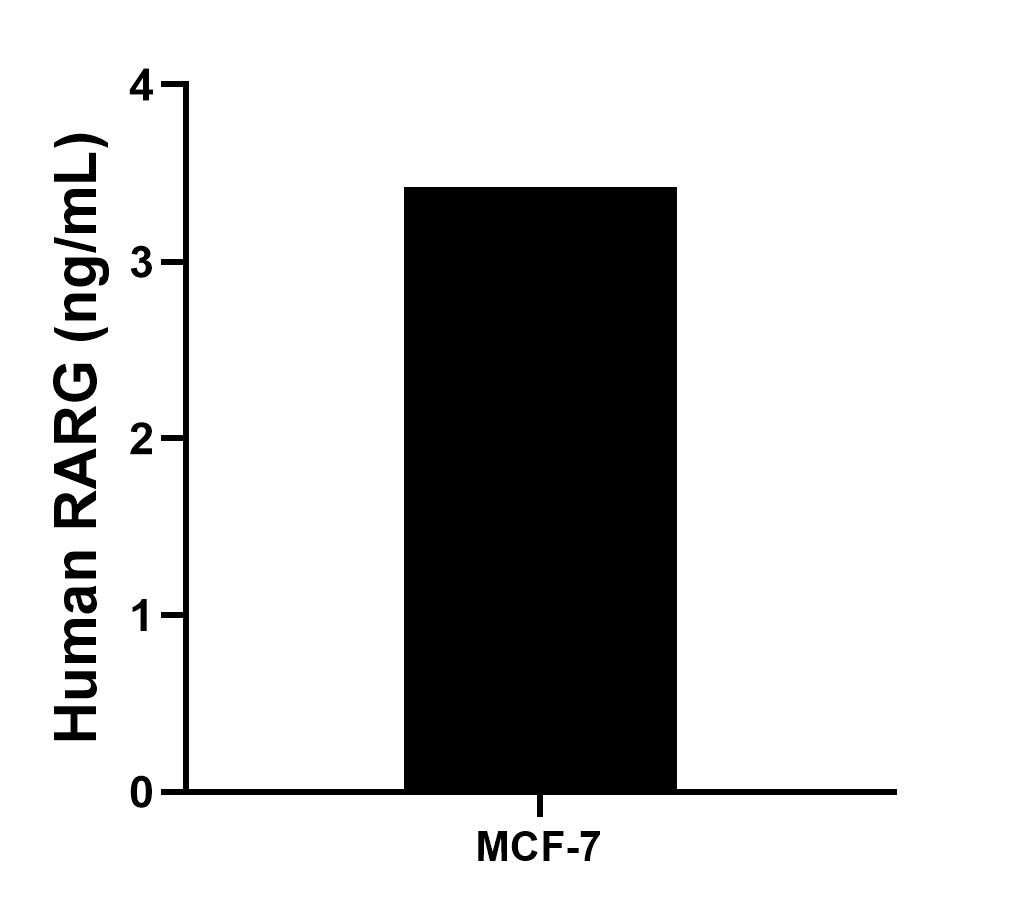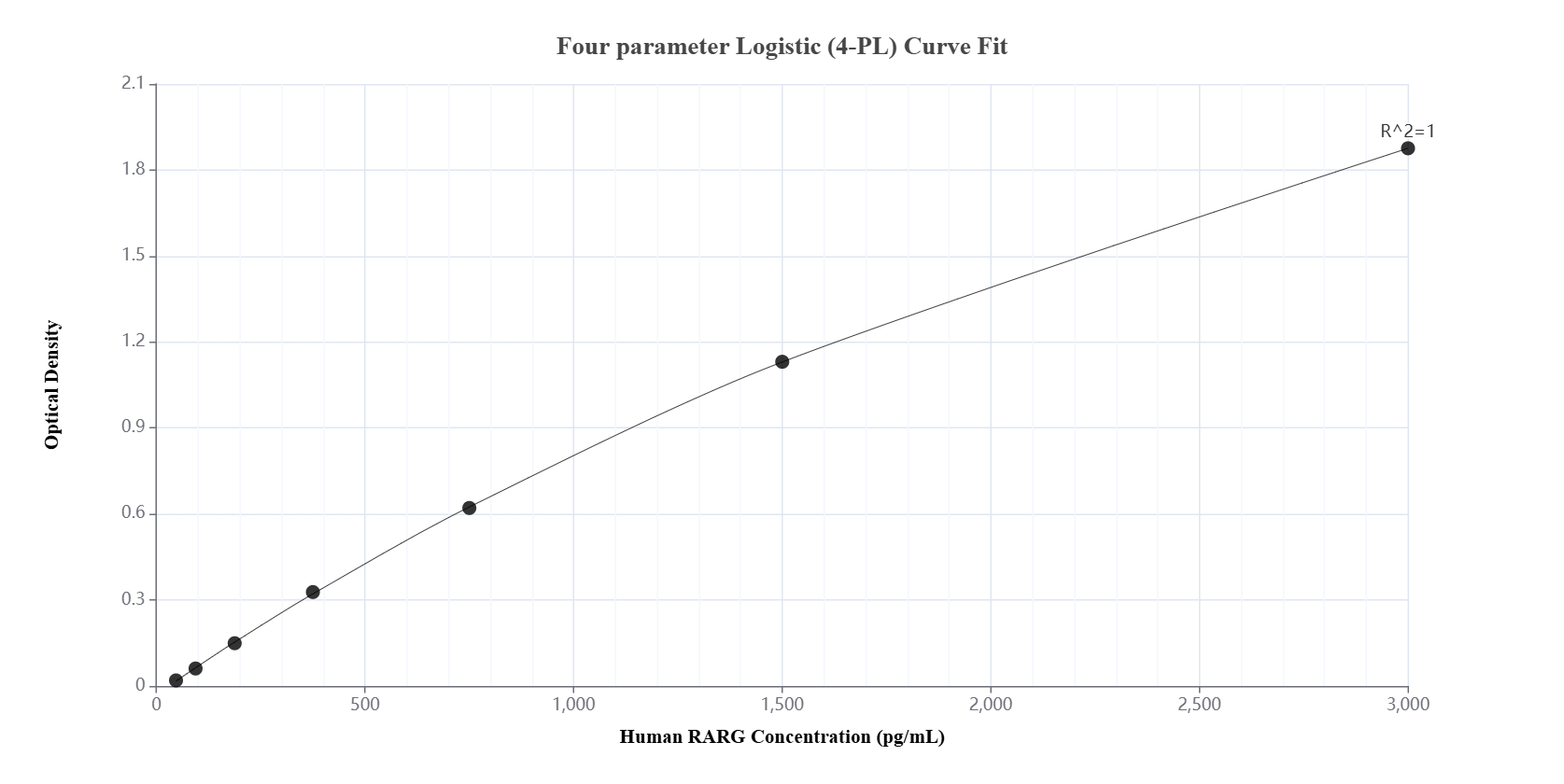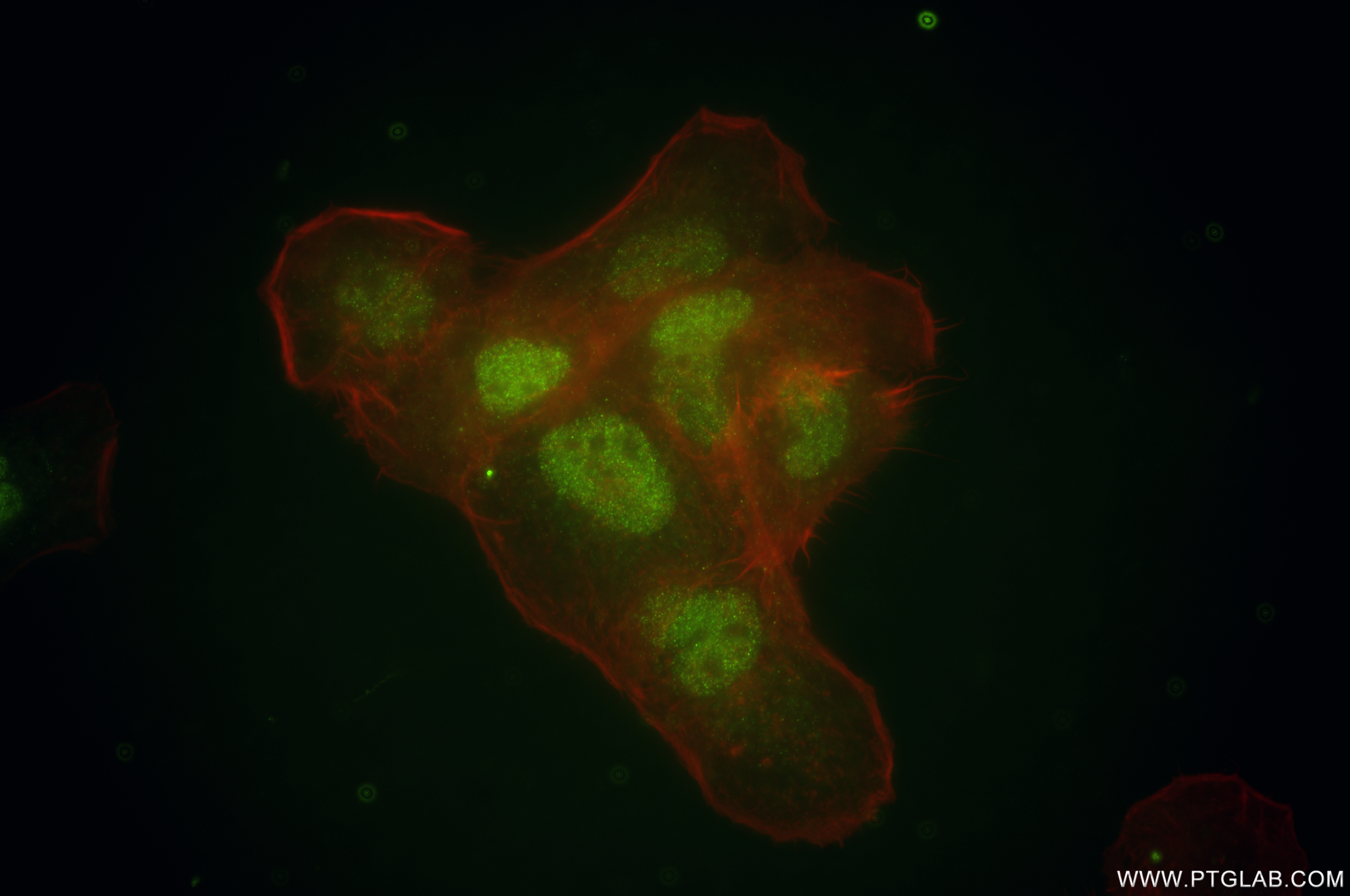验证数据展示
产品信息
86098-1-PBS targets RARG as part of a matched antibody pair:
MP02317-1: 86098-2-PBS capture and 86098-1-PBS detection (validated in Sandwich ELISA)
Unconjugated rabbit recombinant monoclonal antibody in PBS only (BSA and azide free) storage buffer at a concentration of 1 mg/mL, ready for conjugation. Created using Proteintech’s proprietary in-house recombinant technology. Recombinant production enables unrivalled batch-to-batch consistency, easy scale-up, and future security of supply.
This conjugation ready format makes antibodies ideal for use in many applications including: ELISAs, multiplex assays requiring matched pairs, mass cytometry, and multiplex imaging applications.Antibody use should be optimized by the end user for each application and assay.
| 经测试应用 | WB, IF/ICC, Sandwich ELISA, Indirect ELISA Application Description |
| 经测试反应性 | human |
| 免疫原 |
CatNo: Ag1991 Product name: Recombinant human RARG protein Source: e coli.-derived, PGEX-4T Tag: GST Domain: 1-300 aa of BC019098 Sequence: MATNKERLFAAGALGPGSGYPGAGFPFAFPGALRGSPPFEMLSPSFRGLGQPDLPKEMASLSVETQSTSSEEMVPSSPSPPPPPRVYKPCFVCNDKSSGYHYGVSSCEGCKGFFRRSIQKNMVYTCHRDKNCIINKVTRNRCQYCRLQKCFEVGMSKEAVRNDRNKKKKEVKEEGSPDSYELSPQLEELITKVSKAHQETFPSLCQLGKYTTNSSADHRVQLDLGLWDKFSELATKCIIKIVEFAKRLPGFTGLSIADQITLLKAACLDILMLRICTRYTPEQDTMTFSDGLTLNRTQMH 种属同源性预测 |
| 宿主/亚型 | Rabbit / IgG |
| 抗体类别 | Recombinant |
| 产品类型 | Antibody |
| 全称 | retinoic acid receptor, gamma |
| 别名 | NR1B3, RAR gamma, RARC, RAR-gamma, Retinoic acid receptor gamma |
| 计算分子量 | 454 aa, 50 kDa |
| 观测分子量 | 50-60kDa |
| GenBank蛋白编号 | BC019098 |
| 基因名称 | RARG |
| Gene ID (NCBI) | 5916 |
| 偶联类型 | Unconjugated |
| 形式 | Liquid |
| 纯化方式 | Protein A purification |
| UNIPROT ID | P13631 |
| 储存缓冲液 | PBS only, pH 7.3. |
| 储存条件 | Store at -80°C. The product is shipped with ice packs. Upon receipt, store it immediately at -80°C |
背景介绍
Retinoic acid receptors (RARs) are nuclear hormone receptors that act as ligand-dependent transcriptional regulators. In their liganded state, RARs activate transcription, whereas in their nonliganded form, they repress transcription of their target genes. RARs have numerous target genes, which have retinoic response elements in their promoter regions (PMID:17574023). RARG is a member of the retinoid acid receptor (RAR) family, along with RARA, which is known to be involved PML/RARA fusion of acute promyelocytic leukemia, and RARB. and rearrangement that conferred to leukemic cells acute promyelocytic leukemia-like morphologic and immunophenotypic features (PMID:20935257).





